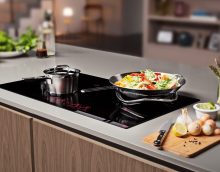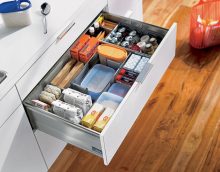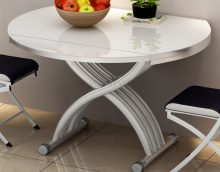How does an induction cooker differ from a ceramic one: which is better, useful recommendations for choosing
Before buying a hob, women always start to wonder what kind of stove for the kitchen to choose? The modern market for household appliances offers a huge variety of Russian and foreign options. But all of them can be conditionally divided into induction and ceramic models. Therefore, this article will be devoted to their analysis and find out how the induction hob differs from ceramic.
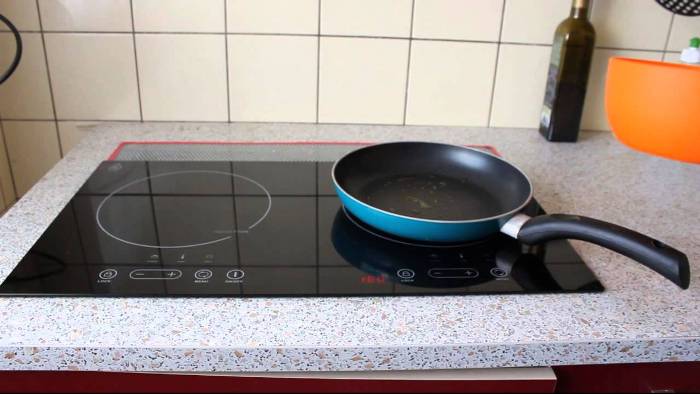
There are two types of cooktops for the kitchen.
Content
- 1 Features of each type of household appliances
- 2 General characteristics
- 3 Advantages and disadvantages of induction hob
- 4 What is the difference between a glass-ceramic surface and an induction cooker?
- 5 Glass-ceramic and induction
- 6 Cookware Requirements
- 7 What kind of household appliances is better?
- 8 What to choose?
- 9 Useful tips for choosing
- 10 Hob comparison
Features of each type of household appliances
The main feature of the induction surface is the principle of its operation. In this case, heating occurs due to a special type of current. The latter heats only the circle for dishes. In this case, the entire remaining surface of the plate remains cold. The glass-ceramic version is different. In this case, when the circle for dishes is heated, not only the working area, but the entire area of the hob is heated to high temperatures.
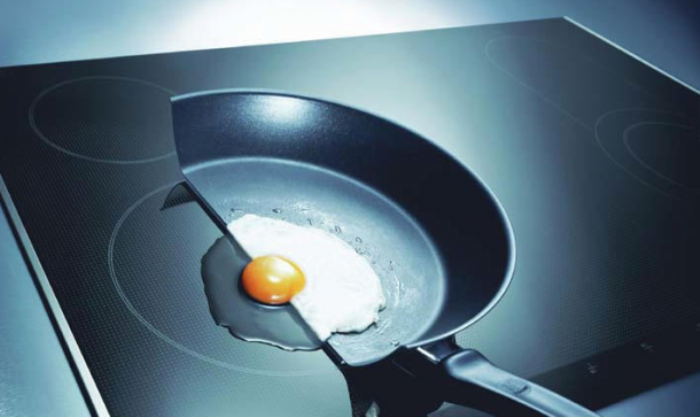
The induction hob remains cold during cooking.
General characteristics
Induction cooker:
- During its inclusion, heating of only specific zones is started. This is due to the fact that the incoming electric current through the built-in coil acts immediately on the magnetized bottom of the dishes.
- Food rarely burns due to a special heating mechanism.
- Since when heating this type of household appliances only certain zones heat up to high temperatures, a little energy is consumed.
- There are always high performance indicators (efficiency is 90%).
- The maximum possible power of one cooking hob of the type described is 2 kW. The power of the four burners is about 8 kW.
- The dimensions on a single burner hob are usually 28-30x35-36 cm. Double-burner stoves have parameters 28-30x60 cm. Four-burner versions of kitchen appliances differ in dimensions 59x52-60 cm.
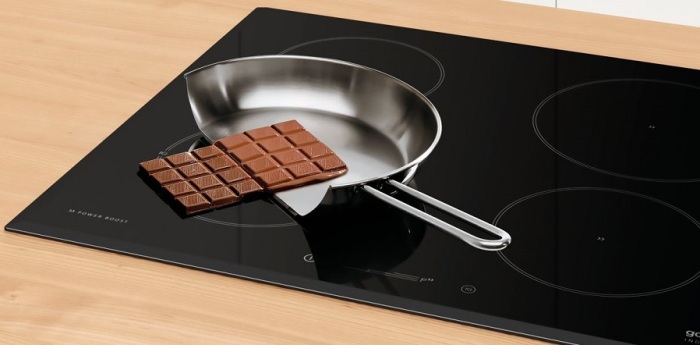
Thanks to the special technology of induction cookers, food rarely burns.
For a ceramic electric stove with a spiral heater:
- First, the working area is heated, then the dishes already set in a certain area are already heated.
- Power consumption is low (when compared with gas appliances).
- Burners can be presented not only in the form of a circle, but also in any other form.
- Dimensions in standard four-burner versions are 50x50 cm, surfaces with sizes of 50x55 cm and 50x60 cm are found. There are options for 60x60 cm.
- Glass ceramics are heated due to the spiral heating element, which is located between the glass and asbestos.
- Glass-ceramic models can have halogen, rapid and induction hobs. The first type of heating zones allows you to quickly fry any contents in a pan. But they quickly fail and consume a lot of energy. Rapid burners heat up more slowly than halogen ones, but they are more durable.Induction zones involve heating only the burners (the rest of the household appliance remains cold).
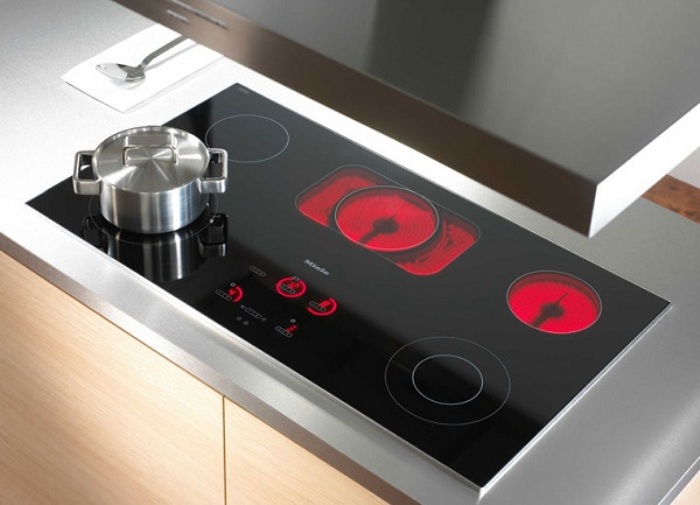
At ceramic plates, the working surface is first heated and then the dishes are heated.
Advantages and disadvantages of induction hob
Induction hob has the following advantages:
- economical energy consumption;
- fast heating of burners;
- 16 (and in some models up to 20) levels;
- auto shut off in the absence of dishes set on the burner;
- blocking in case of overflow of boiling water;
- ability to quickly change the temperature regime;
- a spoon, fork, ladle on such a plate left by chance will not provoke its inclusion.
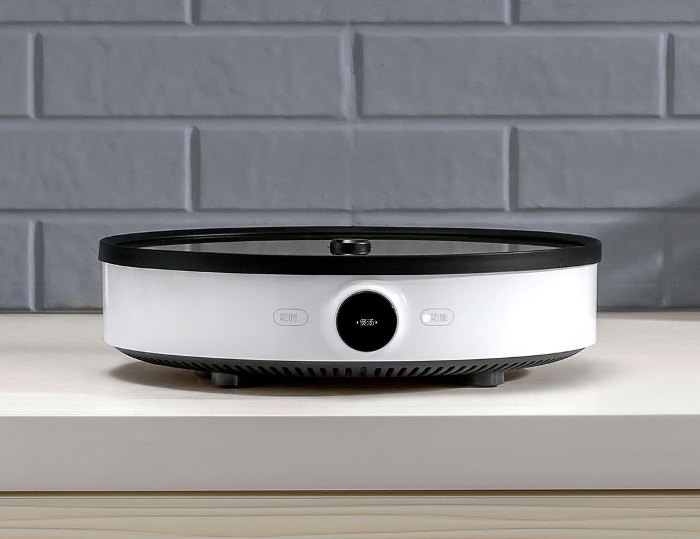
The biggest advantage of the induction cooker is the saving of electricity.
Cons this type of plate also has. It:
- the noise they make during work (it can annoy some);
- heating of specially selected dishes on such a stove will not occur if its diameter is less than 6 cm (therefore, it will not work to brew coffee in a Turk);
- brittle surface requires careful handling.
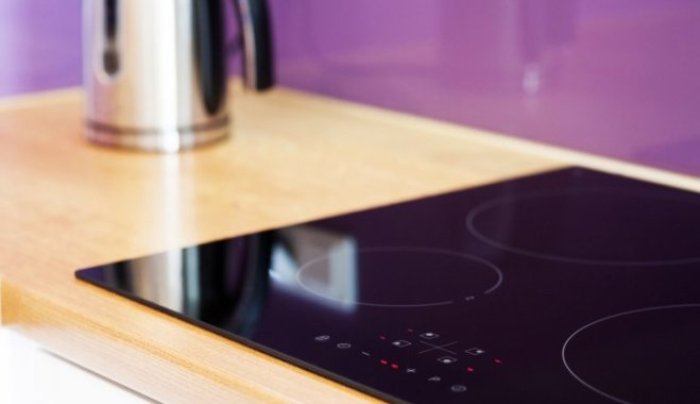
The fragile surface of the induction cooker requires careful handling.
What is the difference between a glass-ceramic surface and an induction cooker?
The key difference between a ceramic glass stove and an induction cooker is the type of heating. The second option involves the transfer of heat by a magnetic field to the bottom of special dishes. Glass ceramic works differently. It transfers thermal energy to the heating element of the hob.
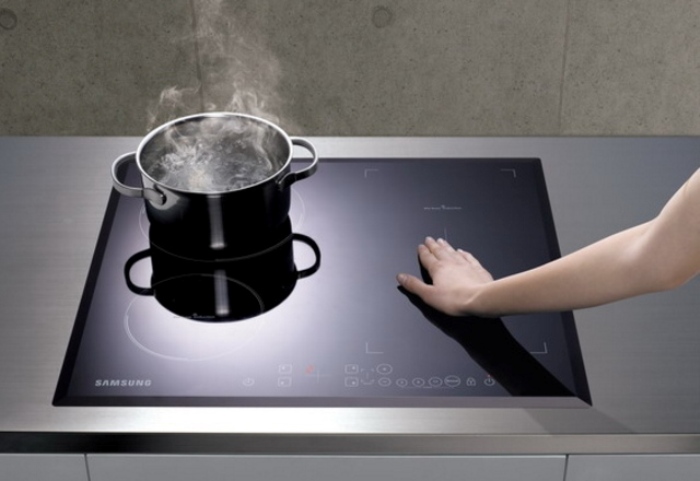
The main difference between induction and ceramic stoves is the type of heating.
Glass-ceramic and induction
Glass ceramics can heat any dishes that can withstand high temperatures. Its feature is a slow glow and a long cooling time. Glass ceramics are relatively cheap and this is its main advantage.
Induction implies quick heating of burners, a short cooling period, safety of use, the need to purchase special dishes with a ferromagnetic bottom. Induction may also differ in price (the glass-ceramic version of the stove is always cheaper).
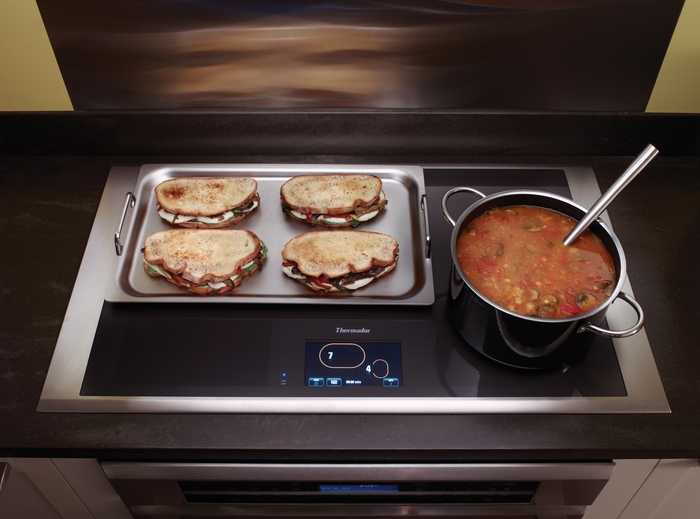
induction cooker is more expensive than ceramic.
Cookware Requirements
A glass-ceramic hob sets only two requirements for utensils - it should be flat and perfectly smooth. In this case, there will be maximum contact between the dishes and the stove. Induction hob sets more demands. It involves the use of special dishes with a ferromagnetic bottom. Any other options will not be perceived by household appliances.
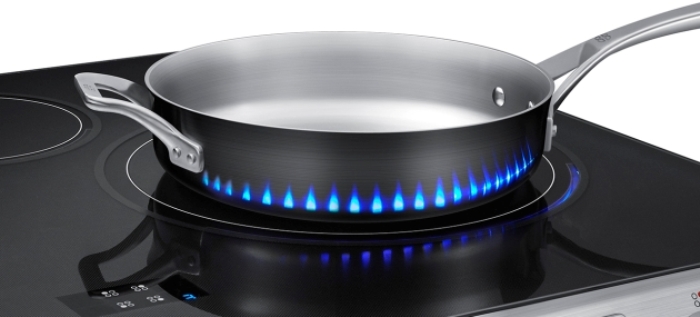
For an induction cooker, you need to purchase special dishes.
What kind of household appliances is better?
A demanding housewife is best suited for an induction hob, as her burners quickly heat up (in 2-3 minutes). Ceramic household appliances take longer to heat up (average heating time for one burner is 5-7 minutes). In addition, using this option, you don’t have to worry about a strong energy consumption, that you can burn yourself and spoil the work surface with randomly sprinkled sugar.
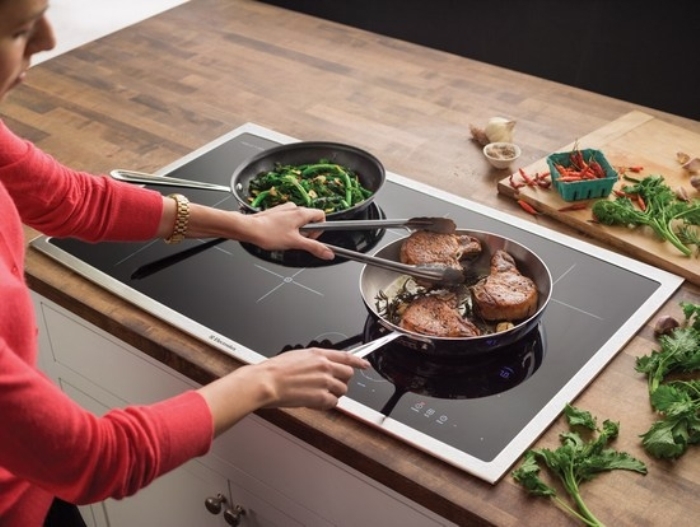
Induction cooker heats faster than ceramic.
If the budget is limited, it makes sense to look at the stove with ceramic hobs. Such household appliances may also have many protective functions.
What to choose?
If the family has children, experts recommend buying an induction hob, since it only heats up the working round zone. The surface itself remains cold. This will reduce the risk of burns in children. But, buying this option, you should be prepared for the need to change all the available dishes for kitchen sets with a special bottom. And this, of course, is an additional cost. But such a purchase in the future will demonstrate its usefulness by saving electricity and a high efficiency indicator.
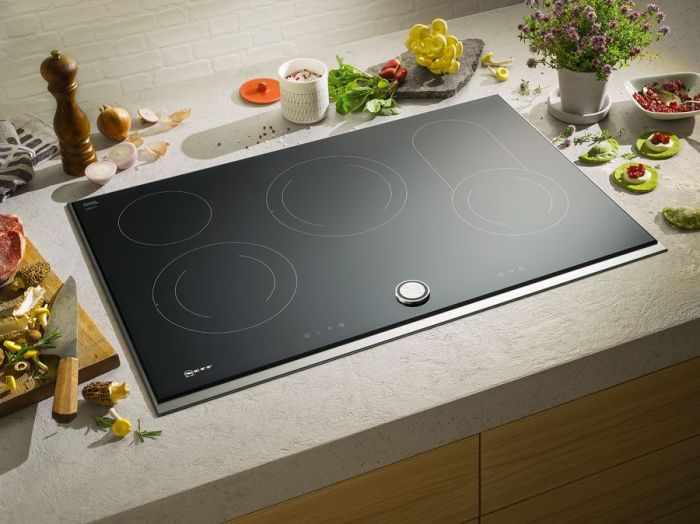
If there are children in the house, it is advisable to buy an induction panel for safety.
If there are no children in the house, and financial opportunities do not allow you to purchase expensive household appliances for the kitchen, you can give preference to a glass-ceramic hob.
Useful tips for choosing
Experts have compiled a list of recommendations on the correct choice of induction cookers. They indicate the need when choosing to pay attention to the following factors:
- Power regulator. He must have many provisions (the maximum possible level is 16-20 positions).
- The function of turning off the stove during the spill of water on it (it is important from a safety point of view).
- Possibility of cooking rings to adapt to the place where the pot was placed.
- The memory function of the temperature regime (it is not necessary, so if there is a problem of lack of money, you can ignore this option).
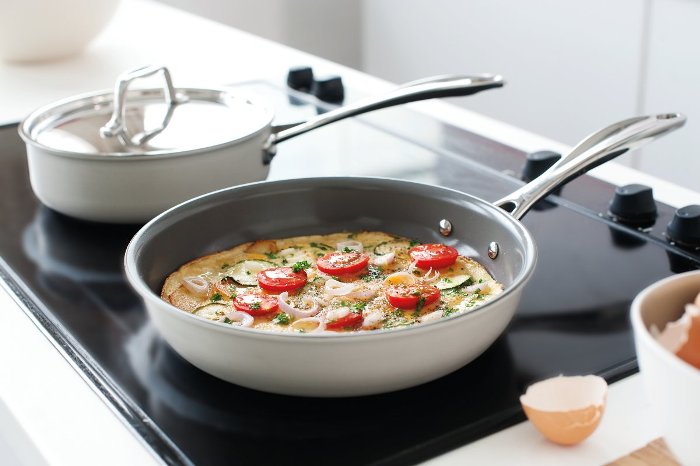
When buying an induction cooker, special attention should be paid to the provisions of the temperature regime.
Important clarification! When installing such household appliances near metal parts, it is important to observe the distance indicated in the equipment certificate.
If you decide to buy a ceramic plate, you must consider the following:
- Decide on the type of burners. This parameter is important, as it will provide prompt surface heating. If the moment of fast heating speed is extremely significant, it is worth abandoning the ceramic option in favor of the induction one.
- Decide on the format of the device. If you want to have one control panel, you can buy a dependent type, which implies a combined option for controlling the stove and oven. Independent household appliances are considered fashionable.
- Look for a touch pad. It is comfortable, easy to operate, looks stylish.
- Pay attention to the possibility of programming. This option will allow you to rationally consume electrical energy.
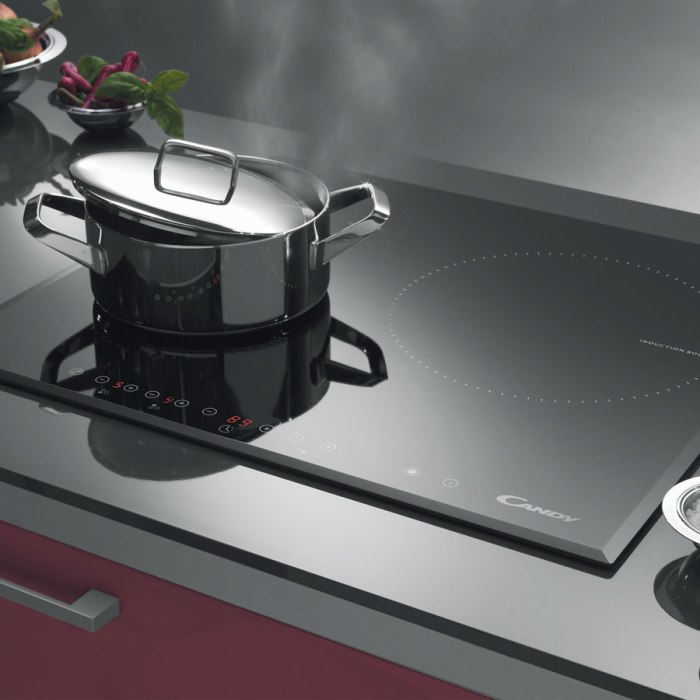
when buying a ceramic plate, special attention should be paid to the presence of a touch panel.
So, which is the best modern induction hob or ceramic hob? Now you know the key difference between induction and ceramic hob. The article also talked about the pros and cons of glass ceramics and induction. Well versed in their characteristics and differences, you can understand which stove is better than a ceramic or technological induction hob.
Hob comparison




